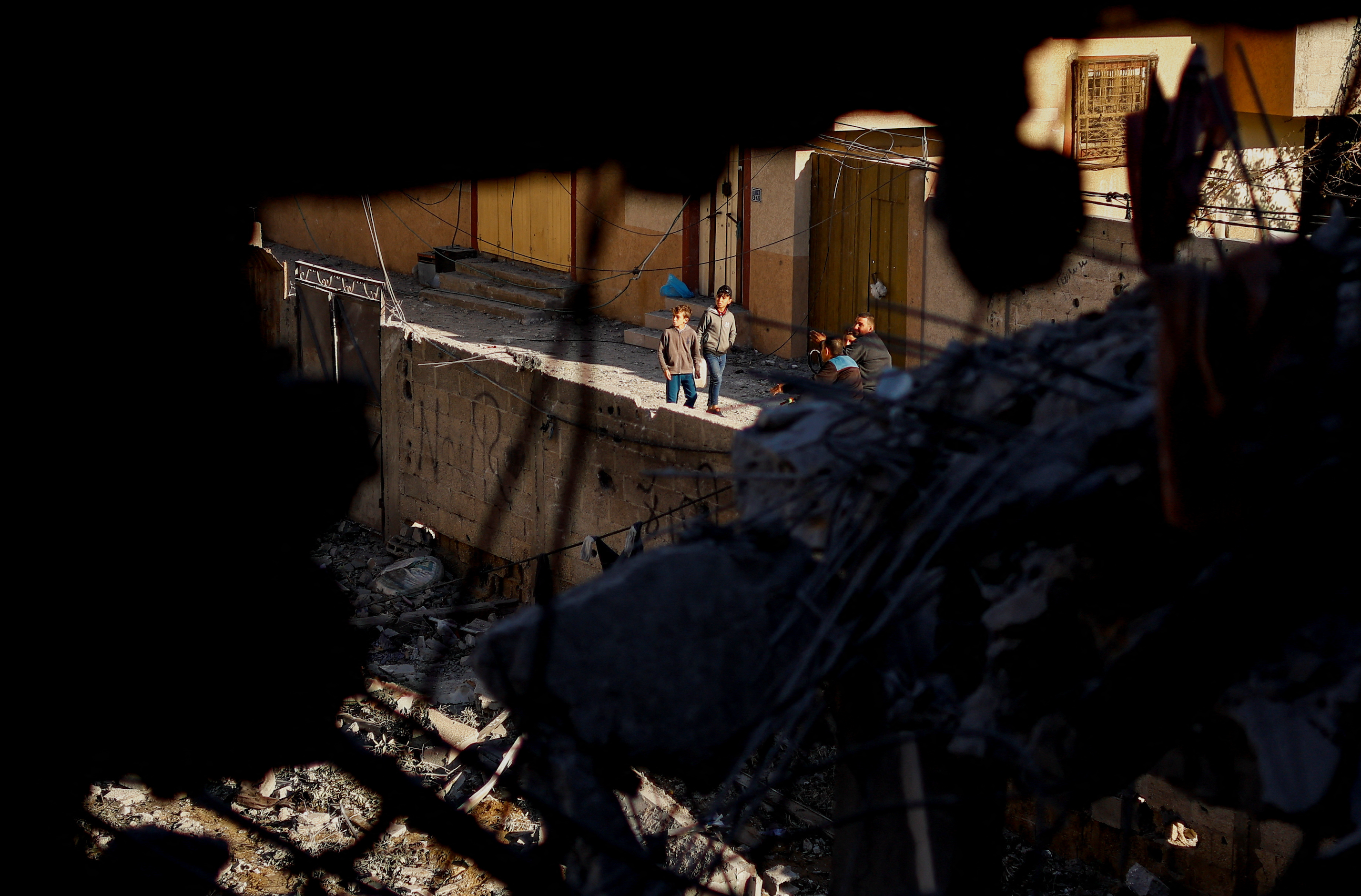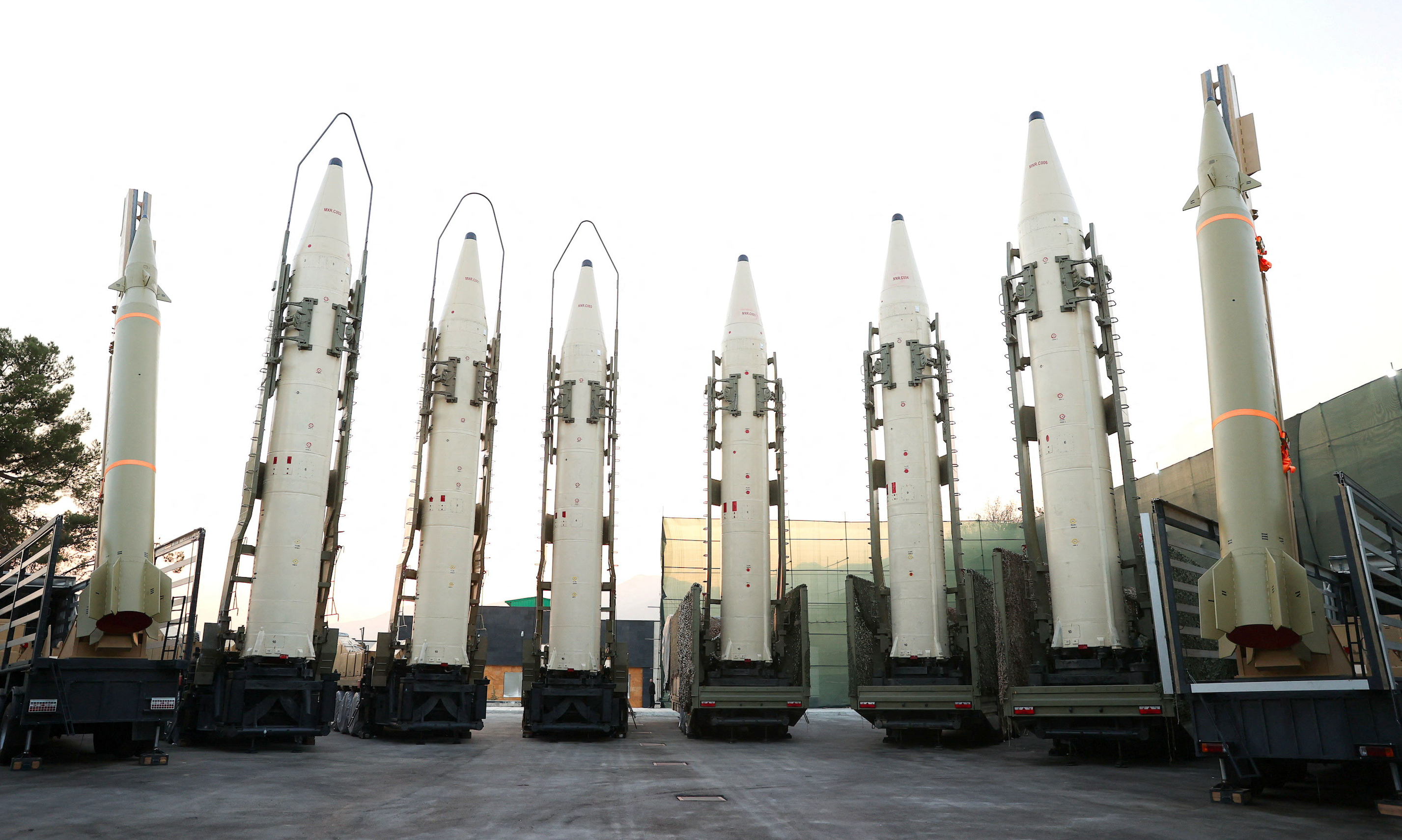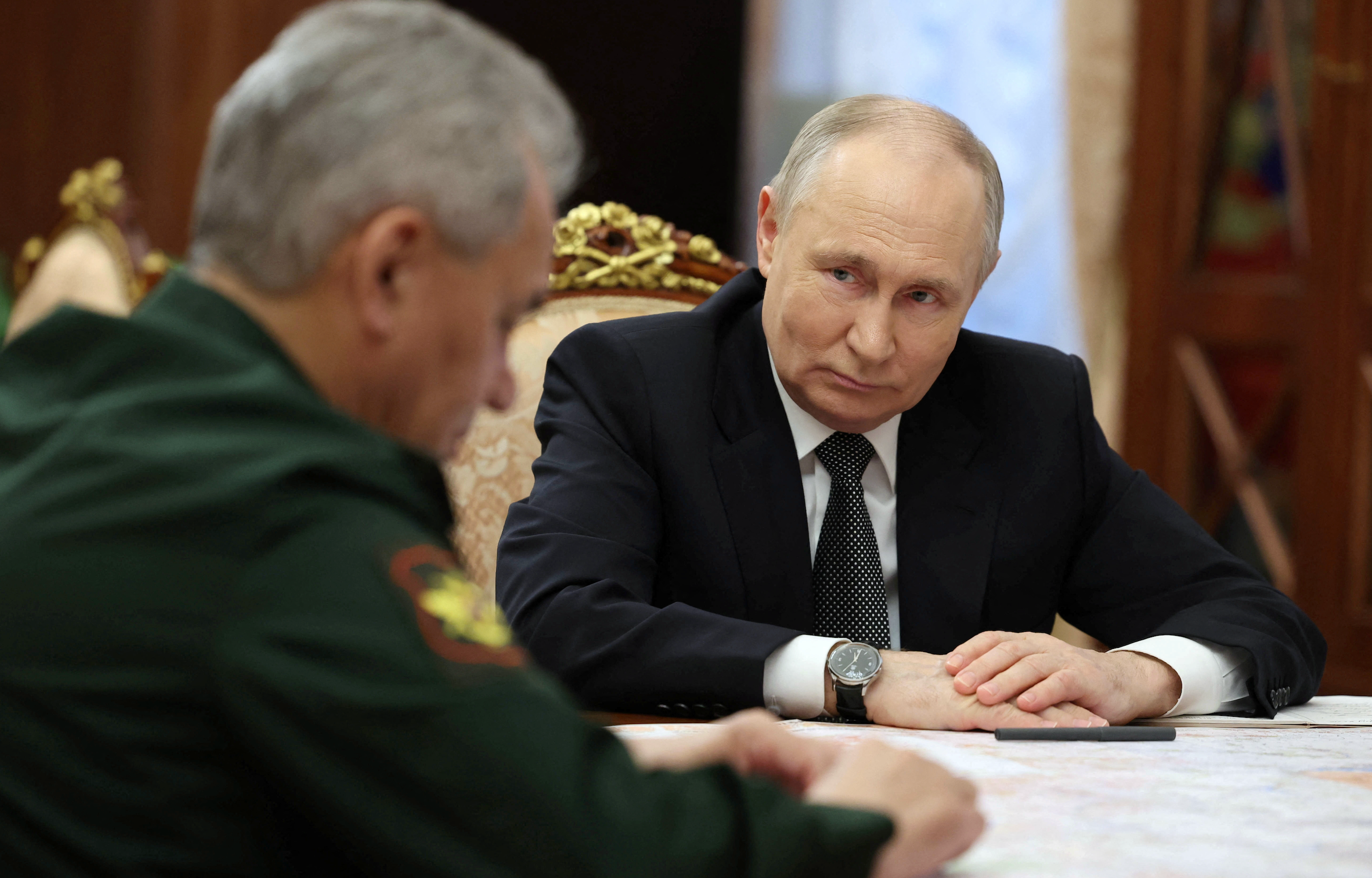
Gaza death toll rises to 29,313, Rafah residents killed in strike
PHOTO CAPTION: A Palestinian man inspects the site of an Israeli strike on a house, amid the ongoing conflict between Israel and Hamas, in Rafah, in the southern Gaza Strip, February 21, 2024. REUTERS/Ibraheem Abu Mustafa
By Bassam Masoud, Ibraheem Abu Mustafa and Nidal al-Mughrabi
RAFAH, Gaza Strip/CAIRO (Reuters) - Israel stepped up its bombardment of the southern city of Rafah, residents said on Wednesday, as the death toll in the war across the devastated Palestinian strip rose to 29,313, according to the Gaza health ministry.
In its daily summary of events in Gaza, the Israeli army said it had intensified its operations in Khan Younis, a city just north of Rafah. It did not mention any attacks on Rafah itself, and did not immediately respond to a request for comment.
About 1.5 million people are estimated to be crammed into Rafah, on the southernmost fringe of the enclave close to the boundary with Egypt, most of them having fled their homes further north to escape Israel's military onslaught.
Israel has said it was preparing for a ground assault on Rafah, despite mounting opposition from foreign countries, including its staunch ally the United States, over concern for civilian lives.
Residents said Israeli tanks had advanced west from Khan Younis into Al-Mawasi, previously an area of relative safety where the army had told Palestinians to seek shelter.
The tanks reached the coastal road, effectively cutting off Khan Younis and Rafah from the rest of the strip, though they retreated after a few hours, according to local residents.
Rafah residents reached by text message reported several air strikes and large explosions in the city, as well as naval boats opening fire on beachfront areas.
Reuters video journalists filmed the aftermath of a strike on the home of the Al-Noor family in Rafah, which was reduced to rubble, showing more than a dozen bodies wrapped in white or black shrouds and bereaved relatives at a Rafah hospital.
Abdulrahman Juma said his wife Noor, who was from the Al-Noor family, as well as his one-year-old daughter Kinza, had both been killed in the strike, along with Noor's parents, brother and other relatives.
Juma was holding Kinza's body, wrapped in a bloodstained white shroud.
"This one, who is on my lap, took my soul away ... She is one-and-a-half years old," he said.
ANGER AT UNITED STATES
At the site of the bombed house, neighbours and relatives vented their anger at the United States, which on Tuesday vetoed a draft United Nations Security Council resolution calling for an immediate humanitarian ceasefire in Gaza.
"Since October 7 and until this moment, the U.S. has been supporting Israel with rockets, aircrafts and tanks. All of these massacres are because of America," said Youssef Sheikh Al-Eid, whose brother had been living in the bombed house.
Residents of Deir Al-Balah in central Gaza and Khan Younis also reported overnight strikes and deaths, and multiple funerals were taking place on Wednesday morning.
The Israel Defence Forces' daily summary mentioned a targeted raid in the Zaytun area in northern Gaza, and operations in Khan Younis.
"Troops of the Givati Brigade conducted activities in eastern Khan Younis and killed approximately 20 terrorists in encounters over the past day," it said.
"IDF Paratroopers expanded activities in western Khan Younis, targeting and killing terrorists with precise sniper fire and striking terror infrastructure. Additionally, two armed terrorists on bicycles approached IDF troops, who responded and killed them."
Gaza's health ministry said a total of 69,333 people had been injured in Gaza since the start of the war on Oct. 7, in addition to the 29,313 deaths, with 118 killed in the past 24 hours.
The war was triggered by Hamas militants who attacked southern Israel on Oct. 7, killing 1,200 people and taking 253 hostage, according to Israel.
Vowing to destroy Hamas, Israel has responded with an air and ground assault on Gaza that has displaced most of the population of 2.3 million, caused widespread hunger and laid waste to much of the territory.
(Additional reporting by Ahmed Elimam in Dubai and Ari Rabinovitch in Jerusalem; Writing by Estelle Shirbon; Editing by Sharon Singleton)









